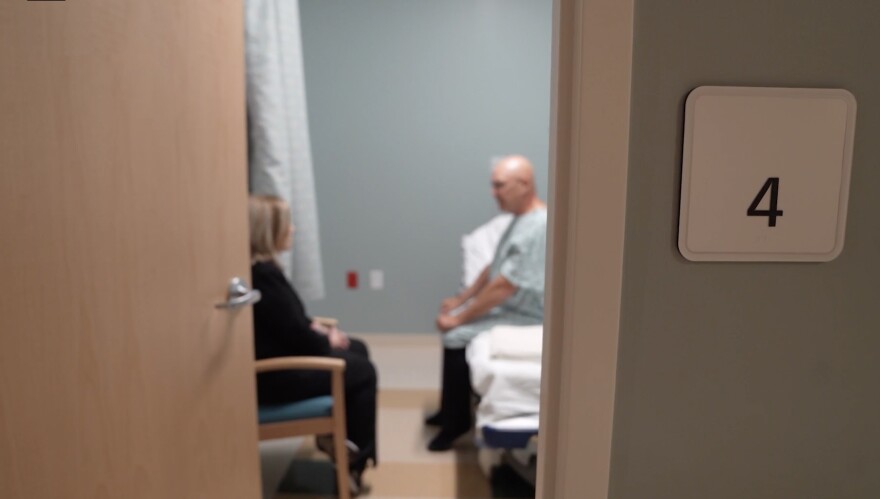This story is part of series marking Telehealth Awareness Week 2023. You can find more reporting here.
In the United States, about one in five adults live with some type of mental illness such as schizophrenia, bipolar disorder, anxiety disorder, or depression. Unfortunately, psychiatric care is limited, especially in rural areas such as the Pee Dee of South Carolina.
“It’s a big challenge for people in this area to get psychiatric care,” said Ken Shranko, Vice President of McLeod Regional Medical Center. “There’s just way more demand than there is supply for these types of services.”
In rural areas, patients seeking mental health treatment have no other option than to go to their local Emergency Department to be evaluated before receiving psychiatric care. Without a local psychiatrist, patients could wait in the Emergency Department for days, weeks, or months before receiving an evaluation.
But now tele-psychiatry has improved access to care for patients at McLeod’s hospitals. Through tele-psychiatry, patients connect to a psychiatrist using a video conferencing platform.
Dr. Catherine Rabon is the Inland Rural Chief Medical Officer for McLeod Health Clarendon, located in Manning, S.C. “Telehealth has removed barriers to care for psychiatric patients,” Rabon explains. “Having tele-psychiatry available in rural areas also improves access to specialists such as pediatric psychiatrists.”
“Telehealth has opened up a whole new world for us with access to care,” Rabon states. “By providing telehealth services we can help meet people where they are. This brings help to them in their own homes, in their own hospitals, in their own communities.”


